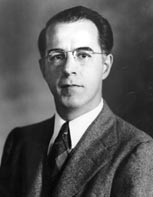 |
 |
|
 |
 |
 |
 |
 |
|
 |
 |
 |
 |

The Arthur K. Parpart Lectureship
7/11/09 - 9:00 AM, Lillie Auditorium
"Regulation of Cell Architecture By Microtubule Plus-end Tracking Proteins"
Anna Akhmanova, Erasmus University, Rotterdam
Anna Akhmanova graduated from the Biological faculty of the Moscow State University 1989. In 1991 she moved to the Netherlands where she performed her graduate research on fly histones with W. Hennig at the University of Nijmegen and received her PhD in 1997. She did post-doctoral research in the group of J. Hackstein at the University of Nijmegen, where she studied anaerobic protozoa. For the second postdoc, Akhmanova moved to the Erasmus University, Rotterdam, where she started cytoskeleton-related studies with N. Galjart. In 2001 she began an independent research group at the Department of Cell Biology, Erasmus Medical Centre, Rotterdam. Anna Akhmanova received prestigious Innovational Research Incentives Scheme VIDI and VICI awards from the Netherlands Organization for Scientific Research. Akhmanova is currently an associate professor at the Erasmus Medical Centre; her group studies cytoskeletal organization and trafficking processes, which contribute to cell polarization, differentiation, vertebrate development and human disease.
 |
|
About the Arthur K. Parpart Lectureship
The Arthur K. Parpart Lectureship was established by Dr. Joseph F. Hoffman in memory of Dr. Parpart’s distinguished career as a devoted teacher and able investigator. Dr. Parpart’s interest in the natural sciences began during his early years as an undergraduate student at Amherst College. Although his research over the years encompassed a wide range of subjects, his main concern was the physiology of the red blood cell, in particular the physiological and biochemical architecture of its cell membrane.
In 1931, Dr. Parpart accepted a faculty position at Princeton University shortly after receiving his Ph.D. from the University of Pennsylvania. In 1948, he was elevated to chairman of Princeton's Department of Biology, a position he occupied until his sudden death in 1965. Each June, Dr. Parpart transported his laboratory to Woods Hole where he spent summers doing research at the Marine Biological Laboratory. For more than ten years, he was a faculty member of the MBL's Physiology Course; in 1963, was elected President of the Laboratory.
Widely known for his work in physiology and biochemistry, Dr. Parpart made a vital contribution to medical science during WWII, by directing a top-priority research project, which succeeded in lengthening the time human blood can be stored from three days to a maximum of forty days.
The career of Arthur K. Parpart was a notable one in all respects. He was a productive scientist, a vigorous and preserving leader, and a man who engendered the respect and friendship of scores of students and colleagues.
|
| |
  |
|
 |
 |
|